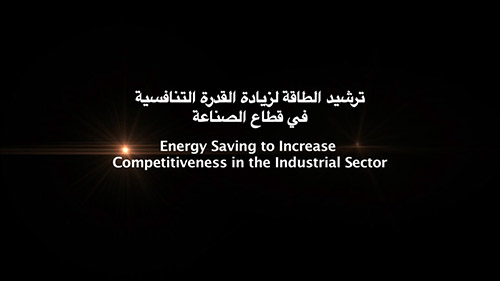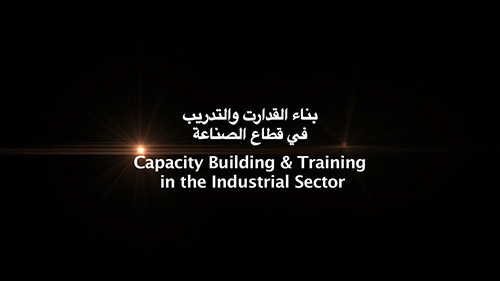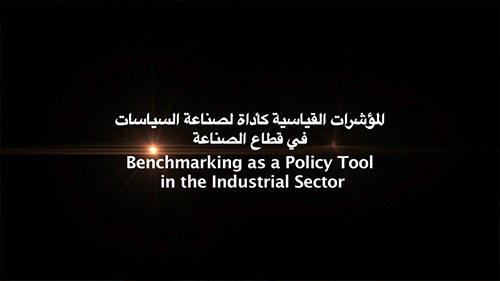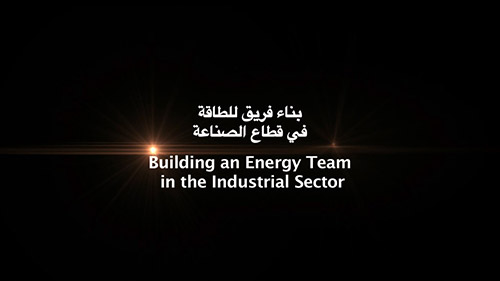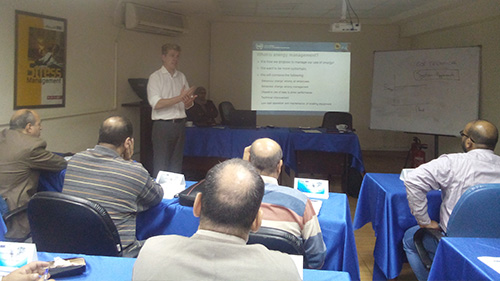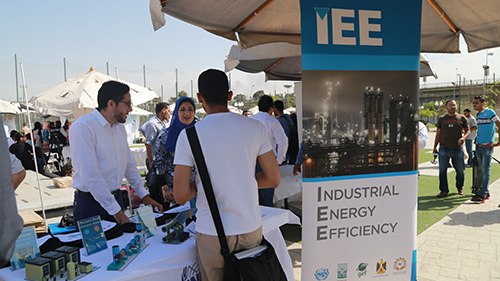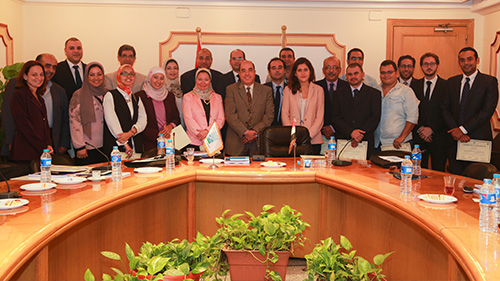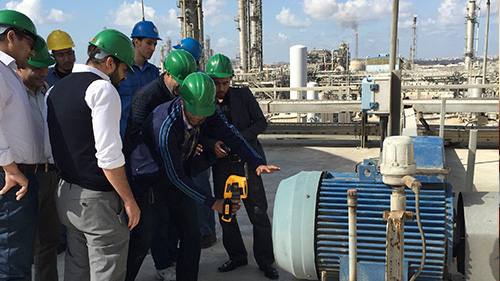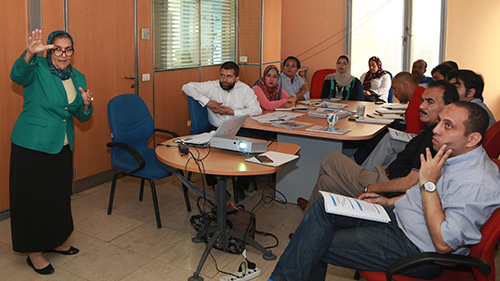Energy savings to increase competitiveness in the industrial sector documentary is one of Kafa’a campaigns outputs and it highlights the important role of energy efficiency and energy management system in increasing productivity, reducing costs and increasing competitiveness.
Category: English News
Capacity Building and Training Documentary
Capacity building and training in the industrial sector documentary is one of the outputs of kafa’a campaign and it highlights the IEE project’s activities in building the capacities of local expertise that include government, private sector, university representatives as well as consultants. It also highlights UNIDO’s approach in transferring knowledge from international consultants to national experts. It provided also a clear example of transferring knowledge among peers in the same industrial sector.
Benchmarking as a Policy Tool Documentary
Benchmarking as a policy tool in the industrial sector documentary is one of kafa’a campaign outputs to raise awareness on energy efficiency and energy managment system. the documentary highlights the importance of benchmarking in policy making, and the efforts made by the project to benchmark three energy intensive industries and the sustainability of benchmarking in Egypt.
Building an Energy Team Documentary
Building an energy team in the industrial sector documentary is one of the outputs of Kafa’a campaign. The documentary highlights the importance of the top management commitment and how each industrial facility build their energy team according to the facility size and targets.
IEE Infographics
An infographic video to highlight the importance of energy efficiency and energy management system. the infographic also shows the main phases in building an energy management system inside industrial facilities.
IEE Project Supports ASEC Cement on EnMS for their Clients
UNIDO’s IEE project has teamed up with leading regional cement, engineering and construction company ASEC Cement to provide ASEC clients with the support needed to implement EnMS at their production facilities.
The IEE project organized a half-day training session for ASEC top management to raise awareness at the highest level. As part of an integrated approach to building knowledge, this session was followed by two days of training for ASEC staff on the implementation of EnMS.
ASEC Cement operates seven plants across Egypt. The company was created in 2005 by Citadel Capital, now Qalaa Holdings SAE., a leading private equity company operating in the Middle East and North Africa.
Celebrating UN Day
The Great Pyramid of Giza and the Sphinx were lit up blue as part of worldwide celebrations to mark the 70th anniversary of the United Nations on 24 October.
“We are pleased to partner with the UN and to light up the pyramids of Giza and the Sphinx with the blue colour of the UN,” said Egypt’s Foreign Minister Sameh Shokry. “Participating in this campaign gives Egypt a unique opportunity to highlight our commitment to the UN’s principles of dignity and prosperity for all,” he added.
Celebrations organized by the Ministry of Foreign Affairs in cooperation with the UN were held at the El-Gezira Youth Club in Zamalek.
The IEE project took part in the celebrations to raise awareness of the potential of industrial energy efficiency and EnMS as drivers for sustainable and inclusive economic development. In addition, the IEE team presented some of the project’s success stories and achievements during the day.
Also on UN Day, in Aswan, the “Sailing the Nile for the Millennium Development Goal (MDG)” initiative was launched with a focus on seventh MDG addressing Environmental Sustainability.
Second Group of Egyptian EnMS Experts Receive Certificates
At the Fifth IEE Project Steering Committee (PSC) meeting, held on 26 October, the second group of national experts trained within the IEE project received their qualification certificates.
The presentation came at the end of a year of training which involved both classroom learning and experience on the job. The trainees were carefully selected from both the public and private sector to represent a diverse range of skills, ensuring that the technical capacity of the newly trained experts would be used throughout the whole value chain.
The evaluation of the experts involved a combination of in-training assessment and engagement, a detailed report on their on-the-job experience and a final exam on EnMS concepts and techniques.
During the PSC meeting, participants also discussed aspects of the policy report and gave an overview of progress on the project to date.
Motor System Optimization (MSO) Training
More than 300 million motors are used in industry, large buildings and in infrastructure globally, and 30 million new electric motors are sold each year for industrial purposes alone. Electric motor driven systems (EMDSs) in industry are estimated to be responsible for about 29% of overall global, and 69% of industrial electricity consumption. Their energy costs are estimated to be USD 362 billion per year. By using existing technologies and practices, the efficiency of industrial EMDSs can be cost-effectively improved on average between 20 and 30%. Such improvement holds the potential to reduce global electricity consumption by 3.2 to 4.8 EJ, cut the CO2 emissions by 770 – 1100 Mt, and save the industry between USD 72 – 108 billion, annually.
It is obvious that Motor System Optimization (MSO) is of vital importance to the industrial sector in Egypt and can save enterprises a huge amount of energy. Thus the IEE project in Egypt organized MSO training from the 7th to the 12th November 2015 at SIDPEC company in Alexandria. The training was carried out by UNIDO’s international MSO experts. Topics discussed during the training included proven approaches aimed at optimizing motor system performance and energy efficiency such as having motor systems management plan, motor sizing and high-efficiency motors technologies, applications of adjustable speed drives, and preventative maintenance schemes amongst other related topics.
Institutionalizing Benchmarking Methodology and Knowledge
In October, the IEE project organized two benchmarking capacity-building sessions for Egyptian National Cleaner Production Center (ENCPC) and Industrial Development Authority (IDA) staff. The aim was to bring the representatives up to speed on existing methods of energy benchmarking, enabling them to then extend this knowledge throughout their respective government agencies. The training was followed by building on-the-job experience in data collection from a representative sample of the ceramics industry in Egypt in order to develop an energy benchmarking report for the sector. The two organizations (i.e. ENCPC and IDA) were selected by the Ministry of Trade and Industry to be responsible for energy benchmarking activities in order to ensure the sustainability of this activity following the completion of the IEE project.
To date, the IEE project has published three energy benchmarking reports for three energy intensive industries: fertilizers, cement and iron and steel.
